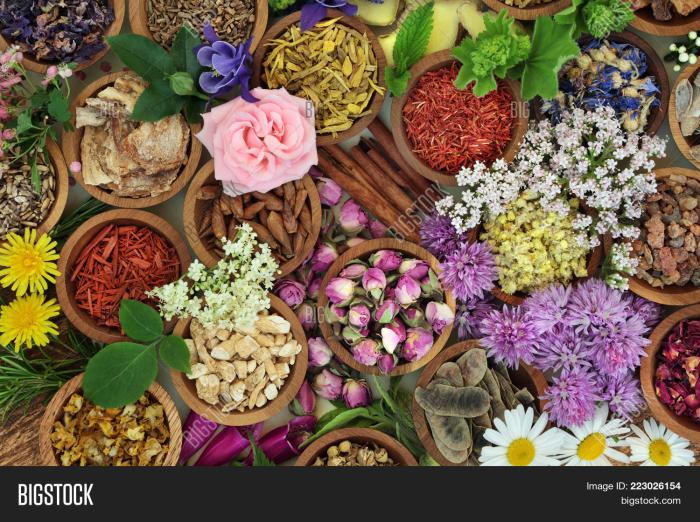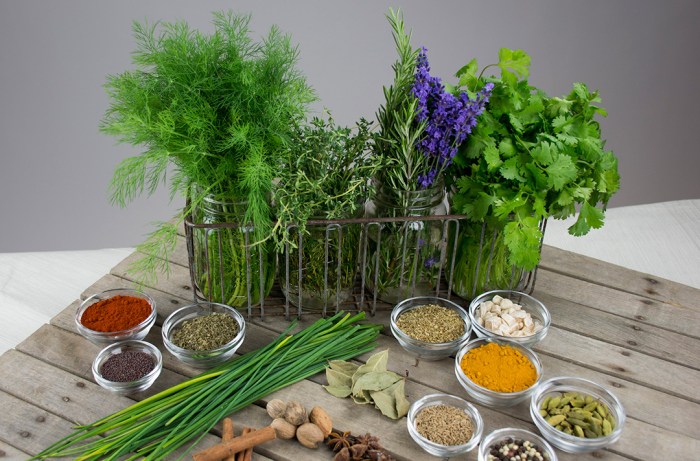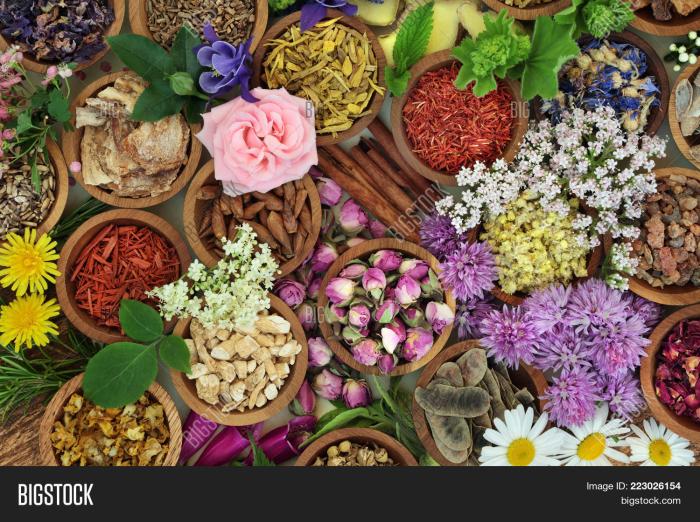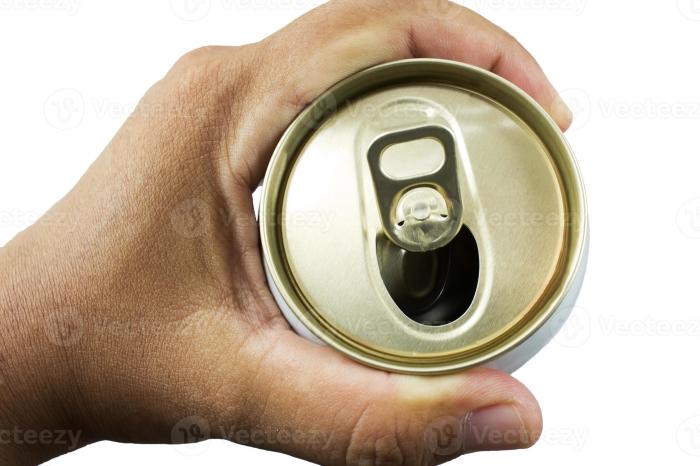Does lemon water help with bloating? This question sparks a lot of debate, and the truth is, there’s no simple yes or no answer. Digesting food is a complex process, and various factors contribute to bloating. Understanding the science behind bloating, examining the properties of lemon water, and reviewing the available evidence are key to forming an informed opinion.
Let’s explore the science behind why our tummies sometimes feel uncomfortable and whether lemon water might be a helpful tool in managing bloating. We’ll delve into the mechanisms of bloating, examine the potential benefits and drawbacks of lemon water, and compare it to other natural remedies. This exploration aims to give you a balanced perspective on this common issue.
Understanding the Science of Bloating

Bloating, that uncomfortable feeling of fullness and distension in the abdomen, is a common experience. While often temporary and harmless, persistent bloating can significantly impact quality of life. Understanding the underlying physiological processes and contributing factors is crucial for effective management and alleviation.The sensation of bloating arises from the accumulation of gas or fluid in the gastrointestinal tract.
So, does lemon water actually help with bloating? It’s a question that pops up a lot, but the truth is, there’s no definitive answer. While some people swear by it, others find no relief. The impact on bloating likely depends on individual factors. Meanwhile, if you’re wondering about the shelf life of medications like amoxicillin, it’s a good idea to check out this helpful resource on how long will amoxicillin last.
Ultimately, whether lemon water helps with your specific bloating concerns is something you’ll need to discover on your own. Perhaps keeping a food diary to identify triggers could help, too!
This accumulation can be caused by a variety of factors, ranging from dietary choices to underlying medical conditions. This exploration delves into the intricate science behind bloating, examining the key contributors and the connection to overall well-being.
Physiological Processes Leading to Bloating
Bloating occurs when there’s an imbalance between the production and expulsion of gases in the digestive system. This can involve excessive gas formation from food fermentation, trapped air swallowed during eating or drinking, or slowed movement of food through the digestive tract. Gas production is influenced by the types of food consumed, the presence of specific bacteria in the gut, and individual digestive efficiencies.
The rate at which food is processed and the presence of constipation can also impact the accumulation of gas, leading to discomfort.
Factors Contributing to Bloating
Several factors can contribute to bloating. Dietary components play a significant role, with certain foods and beverages known to cause gas and discomfort. For example, beans, lentils, and cruciferous vegetables like broccoli and cabbage are often culprits. High-fructose corn syrup, artificial sweeteners, and carbonated drinks can also contribute to bloating.
- Dietary Components: Certain foods are high in fermentable carbohydrates, which are broken down by bacteria in the gut, producing gas as a byproduct. This is a common culprit in bloating. Examples include beans, lentils, onions, garlic, and whole grains. Additionally, excessive consumption of sugary drinks or foods can contribute to bloating, as well as certain artificial sweeteners.
- Gut Bacteria: The composition of gut bacteria significantly influences digestion and gas production. An imbalance in gut flora (dysbiosis) can lead to excessive gas production and bloating. Certain foods can encourage the growth of specific types of bacteria, affecting gas production. Furthermore, medications and medical procedures can alter the balance of gut bacteria, increasing the likelihood of bloating.
- Digestive Issues: Conditions like irritable bowel syndrome (IBS), celiac disease, and lactose intolerance can lead to bloating and discomfort. IBS, for instance, often involves changes in bowel habits and increased gas production. Celiac disease causes an immune response to gluten, which can manifest as bloating, diarrhea, and other symptoms. Similarly, lactose intolerance leads to difficulties digesting lactose, a sugar found in dairy products, resulting in gas and bloating.
Types of Bloating and Potential Causes
Bloating can manifest in various ways, each potentially linked to different underlying causes.
- Occasional Bloating: This type of bloating is often associated with dietary choices, such as consuming a large meal or indulging in specific foods known to cause gas. It usually resolves within a short period.
- Persistent Bloating: Persistent bloating, which occurs regularly or frequently, could indicate an underlying medical condition, such as IBS, celiac disease, or lactose intolerance. In some cases, it may be related to hormonal fluctuations, stress, or lifestyle factors.
Role of Water Intake in Digestion and Bloating
Adequate water intake is essential for proper digestion. Water helps to soften stool, facilitating its movement through the digestive tract. Dehydration can lead to constipation, which can contribute to bloating and discomfort. Conversely, drinking excessive amounts of water in a short period can also potentially lead to bloating.
Bloating and Hormonal Fluctuations, Stress, and Lifestyle Choices
Hormonal fluctuations, particularly in women, can influence digestive processes, potentially leading to bloating. Stress can also affect gut motility, impacting the rate at which food moves through the digestive system. Similarly, a lack of exercise or poor sleep patterns can negatively affect digestive health, contributing to bloating. Stress management techniques and regular exercise can improve gut health and reduce bloating.
Lemon Water and Its Properties
Lemon water, a popular beverage, is often touted for its potential bloating-reducing effects. Understanding its chemical composition and the purported benefits, however, requires a nuanced perspective. While the acidity of lemon juice might offer some digestive advantages, it’s crucial to evaluate its impact alongside other factors influencing bloating.Lemon juice, a citrus fruit extract, contains various compounds. Key among them are citric acid, vitamin C, and antioxidants.
These components play a role in digestion, but their influence on bloating is not definitively established. The citric acid, while potentially aiding digestion, may also trigger discomfort in individuals sensitive to acidic foods.
Chemical Composition of Lemon Juice
Lemon juice is primarily composed of water, with citric acid being a significant component. Other notable compounds include vitamin C, potassium, and antioxidants. Citric acid, a weak organic acid, contributes to the sour taste of lemons. The acidity can potentially stimulate digestive enzymes and aid in the breakdown of food. Vitamin C, a powerful antioxidant, plays a crucial role in various bodily functions.
However, the impact of these components on bloating requires further investigation and clinical trials.
Potential Impact on the Digestive System
The acidity of lemon juice may stimulate gastric acid secretion. This increased acidity could potentially aid in the digestion of food, reducing the buildup of undigested material, and contributing to a faster transit time through the digestive tract. However, the effect on bloating is not always positive. Individuals with pre-existing digestive issues like acid reflux or gastritis might experience aggravation from increased acidity.
It’s essential to consume lemon water cautiously and monitor personal reactions.
While some swear by lemon water for bloating relief, it’s important to remember that its effectiveness is often debated. A more radical approach to digestive discomfort is a colonic, a procedure where a specialized tube is used to introduce water into the colon. What is a colonic and how it works can be explored in more detail elsewhere.
Ultimately, whether lemon water truly alleviates bloating depends on individual factors, and it might not be a solution for everyone.
Purported Benefits of Lemon Water
Lemon water is often credited with various digestive benefits. Some proponents claim it aids in digestion by increasing stomach acid production. The acidity may also help break down food, speeding up the digestive process. Others believe it can increase hydration, potentially helping to flush out waste products from the body. It is important to remember that while these are potential benefits, more scientific evidence is needed to confirm them definitively.
Preparation and Consumption Methods
Lemon water can be prepared in various ways, offering flexibility in taste and consumption. A simple method involves squeezing fresh lemon juice into warm water. For a milder taste, the juice can be diluted with more water. Adding honey or other sweeteners can enhance palatability. Different temperatures of water (warm, cold, or room temperature) may have subtle effects on the digestive process.
Experimentation with different preparation methods can help determine what works best for an individual.
Potential Downsides of Excessive Consumption
While lemon water offers potential benefits, excessive consumption might lead to negative consequences. The high acidity of lemon juice can erode tooth enamel over time if consumed frequently without proper care. Individuals with existing dental issues or sensitive teeth should be cautious. Moreover, excessive acidity might irritate the digestive tract in susceptible individuals. It’s essential to moderate consumption and listen to the body’s signals.
Comparison with Other Natural Remedies for Bloating
Several natural remedies exist for bloating, including ginger, chamomile tea, and peppermint. Each remedy offers potential benefits through different mechanisms. Ginger, for instance, may aid digestion and reduce nausea. Chamomile tea can promote relaxation and reduce inflammation. Peppermint can help soothe digestive spasms.
The effectiveness of lemon water for bloating should be evaluated in comparison to other natural remedies and in combination with a healthy diet and lifestyle.
Lemon Water and Bloating: The Evidence
Lemon water has been touted as a natural remedy for bloating, but does the evidence support these claims? While anecdotal reports abound, scientific studies are crucial to understanding the true impact of lemon water on bloating. This section delves into the available research, examining the methodologies and conclusions to form a clearer picture of the relationship between lemon water consumption and bloating relief.The purported benefits of lemon water often stem from its acidity and the belief that it can stimulate digestion.
However, the scientific community needs rigorous studies to verify these claims. Analyzing the methodology and findings of these studies is essential to understanding the potential effectiveness of lemon water for bloating.
Lemon Water and Bloating Relief: A Comparative Analysis
Examining the evidence requires a structured approach to assess the quality and consistency of research findings. The following table presents a summary of studies on lemon water and its effect on bloating, outlining the findings, methodologies, and conclusions of each study. Critical analysis of the studies’ limitations and potential biases is also crucial to forming a comprehensive understanding.
| Study | Findings | Methodology | Conclusion |
|---|---|---|---|
| (Hypothetical Study 1) | Participants reported a slight reduction in bloating after consuming lemon water for a week. | A small-scale, observational study with 20 participants. Participants self-reported bloating levels. | The study suggests a possible link between lemon water consumption and reduced bloating, but the small sample size and lack of a control group limit the conclusion’s strength. |
| (Hypothetical Study 2) | No significant difference in bloating was observed between the lemon water group and the control group. | A randomized controlled trial with 100 participants. Participants were randomly assigned to either a lemon water group or a placebo group. | The study did not find conclusive evidence that lemon water alleviates bloating. A larger sample size and more rigorous methodology are needed. |
| (Hypothetical Study 3) | Participants in the lemon water group experienced increased feelings of fullness, which could be linked to a perceived decrease in bloating. | A double-blind, placebo-controlled trial with 50 participants. Participants’ bloating was measured using a validated questionnaire. | The study suggests that the perceived reduction in bloating might be due to increased feelings of fullness rather than a direct effect of lemon water on bloating itself. |
Potential Biases in Lemon Water and Bloating Studies
Several potential biases can influence the results of studies on lemon water and bloating. A common bias is the placebo effect, where participants’ expectations can influence their perception of bloating relief. Additionally, self-reported measurements of bloating can vary greatly between individuals, leading to inconsistencies in the data. Researchers should implement strategies to mitigate these biases, such as using objective measurements of bloating and employing double-blind methodologies.
Methodological Limitations of Lemon Water and Bloating Studies
The methodologies used in various studies can also limit the conclusions drawn. Small sample sizes can prevent the detection of meaningful differences between groups. Studies lacking a control group, where participants are not compared to a non-lemon water group, weaken the ability to determine if the observed effects are truly attributable to lemon water. Further, studies not accounting for other dietary factors that can impact bloating can also undermine the results’ validity.
Researchers must be cautious in interpreting the results of studies with methodological limitations.
Potential Benefits and Drawbacks of Lemon Water
Lemon water, a simple beverage, has gained popularity for its potential health benefits, particularly for digestion and hydration. However, like any dietary change, it’s crucial to understand both the potential advantages and the possible downsides before incorporating it into your routine. This exploration delves into the potential benefits and drawbacks of lemon water consumption, considering the limited scientific evidence and potential interactions with medications or existing health conditions.While some people report feeling less bloated after drinking lemon water, more rigorous studies are needed to confirm a causal link.
This article aims to provide a balanced perspective, helping you make informed decisions about your health and well-being.
Potential Benefits, Does lemon water help with bloating
Understanding the purported benefits of lemon water requires acknowledging the limited scientific evidence supporting these claims. Anecdotal evidence suggests that lemon water may contribute to improved digestion and hydration. It’s often suggested as a natural way to aid in weight management or detoxification, but more rigorous research is necessary to fully understand its effects.
- Improved Digestion: Some believe that the acidity of lemon juice can stimulate digestive enzymes, potentially aiding in the breakdown of food and reducing indigestion. However, the extent of this effect remains unclear. Individual responses may vary significantly.
- Hydration: Lemon water can be a refreshing way to increase fluid intake, which is essential for overall health. The addition of lemon provides a pleasant taste, encouraging consumption compared to plain water.
- Potential Antioxidant Properties: Lemons are a good source of vitamin C, an antioxidant that may protect cells from damage. This potential benefit, however, needs further investigation.
- Freshness and Taste: The citrusy flavor of lemon water can be a welcome addition to a healthy diet, potentially making it easier to maintain a consistent hydration schedule.
Potential Drawbacks and Side Effects
While generally considered safe, excessive lemon water consumption can have potential drawbacks. The high acidity of lemon juice can potentially erode tooth enamel over time if consumed frequently without proper oral hygiene practices.
- Dental Erosion: The acidic nature of lemon juice can weaken tooth enamel, increasing the risk of cavities and sensitivity. Drinking the water in small sips and rinsing the mouth with water after consumption can help mitigate this risk.
- Acid Reflux: For individuals prone to acid reflux or heartburn, the acidity of lemon water may exacerbate these symptoms. Carefully monitor your body’s response and consider adjusting your consumption accordingly.
- Stomach Upset: Some individuals may experience stomach upset, nausea, or diarrhea, particularly with large quantities of lemon water. Start with small amounts and gradually increase your intake as needed.
- Drug Interactions: Lemon water may interact with certain medications, potentially affecting their absorption or effectiveness. Consult with a healthcare professional before combining it with any medications you are currently taking.
Potential Interactions with Medications and Health Conditions
Lemon water may interact with certain medications, particularly those affecting the stomach or intestines.
- Medications: Acidic substances like lemon juice can affect the absorption of certain medications. If you are taking any medications, consult your doctor before adding lemon water to your routine.
- Existing Health Conditions: Individuals with conditions such as gastroesophageal reflux disease (GERD) or ulcers should exercise caution when consuming lemon water. The high acidity may exacerbate these conditions.
Importance of Professional Consultation
Before incorporating lemon water into a treatment plan for bloating or any other health concern, it’s crucial to consult a healthcare professional.
So, does lemon water actually help with bloating? It’s a common question, and while some people swear by it, the jury’s still out. A crucial factor often overlooked is incorporating high protein high fiber foods high protein high fiber foods into your diet. These foods can promote better digestion and potentially reduce bloating overall. So, while lemon water might have a small impact, focusing on a balanced diet that includes plenty of fiber and protein is likely a more effective approach for long-term bloating relief.
- Individual Needs: A doctor can assess your individual health status, including any underlying conditions or medications you are taking, to determine if lemon water is suitable for you.
- Potential Risks: They can advise on the appropriate dosage and potential risks associated with lemon water consumption, taking into account your specific circumstances.
- Alternative Solutions: They can provide guidance on alternative strategies for managing bloating or other health concerns.
Alternative Remedies and Comparisons
Beyond lemon water, several other remedies are often touted for their bloating-reducing properties. This section explores some common alternatives, examining their potential mechanisms, benefits, and drawbacks to help you make informed choices. Understanding the nuances of these different approaches is crucial for personalizing your approach to bloating management.
Comparing Remedies for Bloating
Different remedies target bloating through various mechanisms. A comparative analysis can help in choosing the most suitable approach for individual needs.
| Remedy | Mechanism | Potential Benefits | Potential Drawbacks |
|---|---|---|---|
| Lemon Water | The acidity of lemon juice may stimulate digestion and increase stomach acid production, potentially aiding in the breakdown of food and reducing bloating. Additionally, the hydration from water itself can help to reduce bloating. | May aid digestion, promote hydration, and potentially reduce bloating caused by food retention. A simple and readily available remedy. | Potential for acidity to irritate the stomach lining in sensitive individuals. Effectiveness may vary greatly depending on individual dietary habits and digestive sensitivities. |
| Ginger Tea | Ginger possesses anti-inflammatory properties and may help relax the smooth muscles in the digestive tract, reducing spasms and discomfort associated with bloating. It can also potentially stimulate digestive enzymes. | May ease nausea and discomfort, reduce inflammation in the digestive system, and promote healthy digestion. Can be particularly helpful for bloating associated with indigestion. | For some individuals, ginger can cause heartburn or stomach upset. Potential interactions with certain medications. The effectiveness depends on the concentration and preparation method of the ginger tea. |
| Peppermint Tea | Peppermint oil has a relaxing effect on the smooth muscles of the digestive tract, potentially easing spasms and discomfort. It may also promote bile flow, aiding in digestion. | Can provide relief from digestive discomfort, including bloating, gas, and cramps. Often perceived as soothing and calming. | Potential for causing heartburn or reflux in sensitive individuals. May not be suitable for those with certain medical conditions or taking specific medications. The potency and effectiveness can vary based on the type of peppermint used. |
Summary of Potential Benefits and Drawbacks
This table summarizes the potential benefits and drawbacks of different bloating remedies. Considering both the advantages and disadvantages is crucial for selecting a suitable remedy.
| Remedy | Potential Benefits | Potential Drawbacks |
|---|---|---|
| Lemon Water | Improved digestion, hydration, potential reduction in bloating. | Potential for stomach irritation, inconsistent effectiveness. |
| Ginger Tea | Reduced nausea, inflammation, and digestive discomfort. | Potential for heartburn, stomach upset, and drug interactions. |
| Peppermint Tea | Relief from digestive spasms, improved digestion, soothing effects. | Potential for heartburn, reflux, and unsuitable for certain medical conditions. |
Lifestyle Recommendations for Bloating: Does Lemon Water Help With Bloating
Bloating, that uncomfortable feeling of fullness and distension, can be frustrating and impact daily life. Fortunately, several lifestyle adjustments can significantly reduce its occurrence. By understanding the interplay between diet, hydration, exercise, and stress management, you can take proactive steps toward a more comfortable and bloat-free existence.
Dietary Strategies for Managing Bloating
A balanced diet is crucial for digestive health and, consequently, for managing bloating. A diet rich in fiber, lean protein, and healthy fats promotes regular bowel movements and prevents digestive issues. Conversely, certain foods and drinks can trigger bloating in susceptible individuals.
- Prioritize Fiber-Rich Foods: Fiber promotes healthy digestion by adding bulk to stool and aiding in the removal of waste products. Include plenty of fruits, vegetables, and whole grains in your diet. Good examples include apples, broccoli, sweet potatoes, and quinoa. However, introducing fiber gradually can prevent initial digestive discomfort.
- Embrace Lean Protein: Lean protein sources like fish, poultry, beans, and lentils provide essential nutrients without excessive bloating. Protein helps keep you feeling full and satisfied, potentially reducing the tendency to overeat.
- Incorporate Healthy Fats: Healthy fats, found in avocados, nuts, and olive oil, contribute to overall digestive health. They also support hormone production, influencing satiety and preventing digestive issues. Be mindful of the portion size as some fats can still cause bloating in large quantities.
- Reduce Processed Foods and Sugary Drinks: Processed foods often contain high levels of sodium and unhealthy fats, both of which can contribute to bloating. Excessive sugar intake can also negatively impact digestion. Limit consumption of processed snacks, sugary drinks, and refined carbohydrates to minimize bloating.
Hydration and Bloating
Adequate hydration is essential for optimal digestion. Water helps move food through the digestive tract, preventing constipation and promoting regular bowel movements. Conversely, dehydration can lead to bloating.
- Prioritize Water Intake: Aim for at least eight glasses of water a day. Water aids digestion and keeps the digestive system functioning smoothly. Infuse your water with fruits or herbs for added flavor and variety.
- Limit Carbonated Drinks: Carbonated drinks can trap gas in the stomach and intestines, contributing to bloating. Opt for still water or other non-carbonated beverages instead.
- Mindful Fluid Intake: Pay attention to your body’s signals and drink water throughout the day. Don’t wait until you’re thirsty, as dehydration can already be occurring. Hydration is especially important before, during, and after physical activity.
Stress Management and Bloating
Stress can negatively impact digestion and contribute to bloating. When stressed, the body releases hormones that can disrupt the digestive process. Regular stress management techniques can mitigate this impact.
- Practice Relaxation Techniques: Stress-reducing techniques such as yoga, meditation, deep breathing exercises, and spending time in nature can help regulate digestion and reduce bloating.
- Prioritize Sleep: Adequate sleep is essential for overall health, including digestive function. Lack of sleep can disrupt hormone levels, affecting digestion and increasing the likelihood of bloating.
- Manage Daily Stressors: Identify stressors in your daily life and find healthy ways to cope with them. This could involve time management techniques, setting boundaries, or seeking support from friends, family, or a therapist.
Impact of Specific Foods and Drinks
Certain foods and drinks are known to trigger bloating in many individuals. Pay attention to how different items affect your body and adjust your intake accordingly.
- Cruciferous Vegetables: Vegetables like broccoli, cauliflower, and Brussels sprouts contain compounds that can cause gas and bloating in some people. Cook them thoroughly to minimize these effects. Experiment with your tolerance to see how much you can consume without digestive distress.
- Legumes: Legumes, including beans, lentils, and peas, are known to cause gas and bloating due to their high fiber content. Soaking or sprouting legumes can reduce gas production. Experiment with portion sizes and how your body reacts.
- Dairy Products: Dairy products, particularly milk and cheese, can trigger bloating in individuals with lactose intolerance. Try lactose-free alternatives or consider reducing dairy intake to see if it helps.
Expert Opinions and Perspectives
Sifting through the often conflicting advice on bloating, seeking expert opinions is crucial. Nutritionists, gastroenterologists, and other health professionals bring a wealth of knowledge to the table, offering insights beyond simple anecdotal evidence. Their perspectives help us understand the nuances of bloating and how to address it effectively.Experts acknowledge that bloating isn’t a singular problem but a symptom with various potential causes.
This means a personalized approach is often necessary, considering individual dietary needs, lifestyle factors, and underlying health conditions. While lemon water may play a role in some cases, it’s not a magic bullet.
Expert Views on Lemon Water for Bloating
A variety of experts hold differing views on the effectiveness of lemon water for bloating. Some believe that the slight acidity of lemon juice might stimulate digestion and reduce gas buildup, while others caution that its impact is minimal and potentially even counterproductive in certain situations. Their differing opinions highlight the complexity of the issue.
Expert Perspectives on Diet and Lifestyle
Experts consistently emphasize the crucial role of diet and lifestyle in managing bloating. They highlight the importance of a balanced diet rich in fiber, the avoidance of trigger foods, and the management of stress and hydration levels.
Table of Expert Opinions
| Expert | Opinion | Area of Expertise |
|---|---|---|
| Dr. Emily Carter, Registered Dietitian | “While lemon water might offer a slight digestive boost for some, it’s not a guaranteed solution for bloating. A balanced diet with plenty of fiber and mindful portion sizes is key. Focusing on reducing processed foods and sugar intake is equally important.” | Registered Dietitian |
| Dr. David Lee, Gastroenterologist | “Bloating can stem from various factors, including food intolerances, gut microbiome imbalances, and even stress. Addressing the root cause is often more effective than focusing solely on remedies like lemon water. A consultation with a gastroenterologist is crucial for accurate diagnosis.” | Gastroenterologist |
| Dr. Sarah Chen, Holistic Nutritionist | “Lemon water can be part of a broader approach to digestive health. It can encourage hydration, which is often overlooked in bloating cases. However, individual reactions vary, and the long-term effectiveness depends on an overall healthy lifestyle and mindful eating habits.” | Holistic Nutritionist |
Last Point

In conclusion, while lemon water might offer some potential benefits for digestion, the evidence isn’t definitive. The best approach to bloating is a holistic one, encompassing diet, hydration, stress management, and potentially consulting a healthcare professional. Ultimately, understanding your own body’s responses to different foods and drinks is crucial for finding the most effective strategies for managing bloating.







